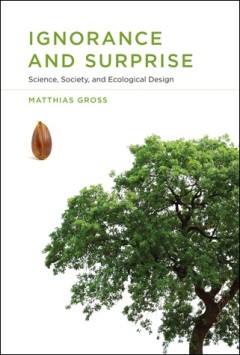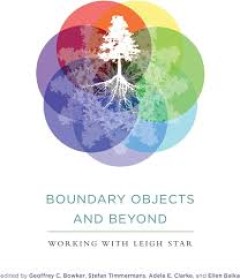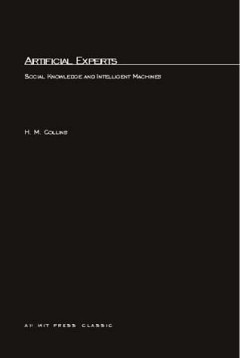Filter by

Ignorance and Surprise: Science, Society, and Ecological Design
In this work, Matthias Gross examines the relationship between ignorance and surprise, proposing a conceptual framework for handling the unexpected and offering case studies of ecological design that demonstrate the advantages of allowing for surprises and including ignorance in the design and negotiation processes.OCLC-licensed vendor bibliographic record.
- Edition
- -
- ISBN/ISSN
- 9780262265911
- Collation
- 1 online resource (xii, 240 pages) :illustrations, maps.
- Series Title
- -
- Call Number
- -

Boundary Objects and Beyond: Working with Leigh Star
Susan Leigh Star (1954--2010) was one of the most influential science studies scholars of the last several decades. In her work, Star highlighted the messy practices of discovering science, asking hard questions about the marginalizing as well as the liberating powers of science and technology. In the landmark work Sorting Things Out, Star and Geoffrey Bowker revealed the social and ethical his…
- Edition
- -
- ISBN/ISSN
- 9780262331012
- Collation
- 1 online resource (1 PDF (ix, 548 pages)).
- Series Title
- -
- Call Number
- -

Information politics on the Web
Does the information on the Web offer many alternative accounts of reality, or does it subtly align with an official version? In Information Politics on the Web, Richard Rogers identifies the cultures, techniques, and devices that rank and recommend information on the Web, analyzing not only the political content of Web sites but the politics built into the Web's infrastructure. Addressing the …
- Edition
- -
- ISBN/ISSN
- 9780262256872
- Collation
- 1 online resource (xi, 200 pages) : illustrations
- Series Title
- -
- Call Number
- 001 ROG i

Artificial experts :social knowledge and intelligent machines
In Artificial Experts, Collins explains what computers can't do, but he also studies the ordinary and extraordinary things that they can do. He argues that the machines we create are limited because we cannot reproduce in symbols what every community knows, yet we give our machines abilities by the way we embed them in our society. He unfolds a compelling account of the difference between human…
- Edition
- -
- ISBN/ISSN
- 0262255936
- Collation
- 1 online resource (xiii, 266 pages) :illustrations.
- Series Title
- -
- Call Number
- -

World brain
"A compilation of essays by H. G. Wells describing a future world encyclopedia, similar to what we now know as Wikipedia"--OCLC-licensed vendor bibliographic record.
- Edition
- -
- ISBN/ISSN
- 0262365499
- Collation
- 1 online resource.
- Series Title
- -
- Call Number
- -

Sorting things out :classification and its consequences
"In Sorting Things Out, Geoffrey C. Bowker and Susan Leigh Star explore the role of categories and standards in shaping the modern world. They investigate a variety of classification systems, including the International Classification of Diseases, the Nursing Interventions Classification, race classification under apartheid in South Africa, and the classification of viruses and of tuberculosis.…
- Edition
- -
- ISBN/ISSN
- 9780262269070
- Collation
- 1 online resource (xii, 377 pages) :illustrations, maps.
- Series Title
- -
- Call Number
- -

Social empiricism
"A Bradford book."For the last forty years, two claims have been at the core of disputes about scientific change: that scientists reason rationally and that science is progressive. For most of this time discussions were polarized between philosophers, who defended traditional Enlightenment ideas about rationality and progress, and sociologists, who espoused relativism and constructivism. Recent…
- Edition
- -
- ISBN/ISSN
- 9780262284028
- Collation
- 1 online resource (xi, 175 pages)
- Series Title
- -
- Call Number
- -
 Computer Science, Information & General Works
Computer Science, Information & General Works  Philosophy & Psychology
Philosophy & Psychology  Religion
Religion  Social Sciences
Social Sciences  Language
Language  Pure Science
Pure Science  Applied Sciences
Applied Sciences  Art & Recreation
Art & Recreation  Literature
Literature  History & Geography
History & Geography